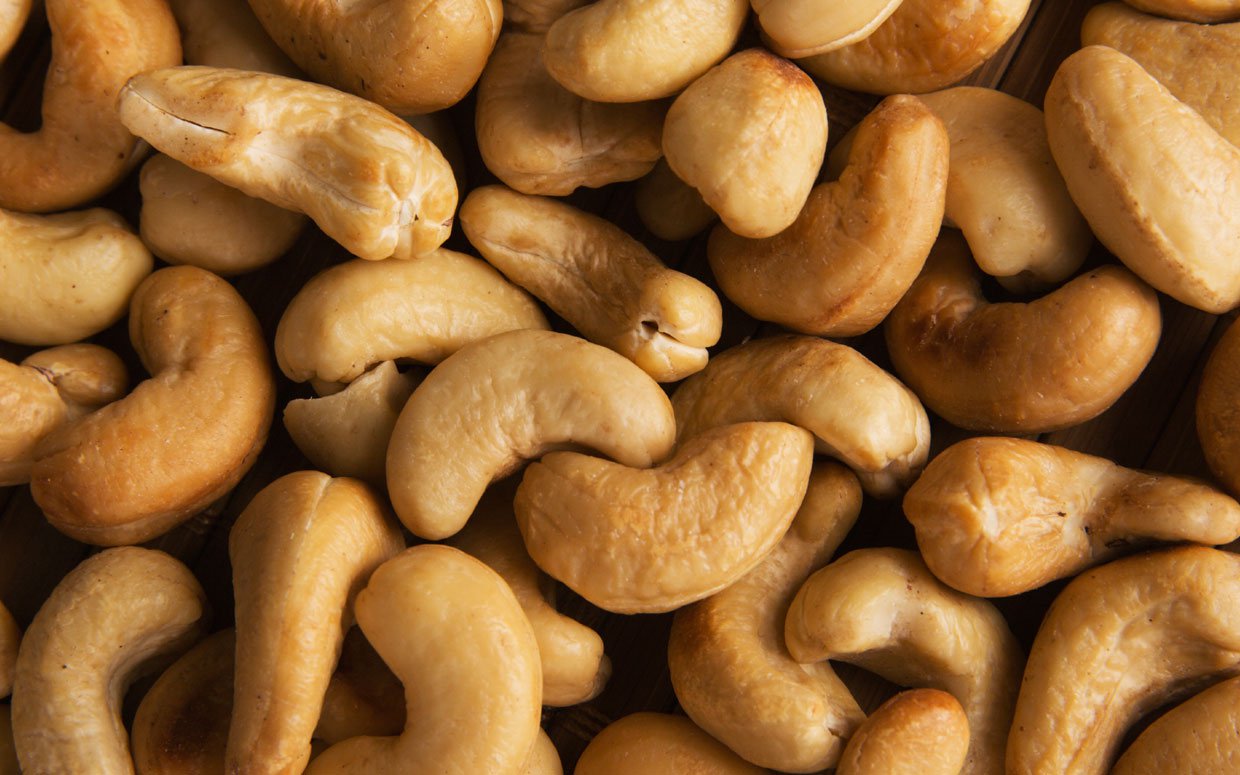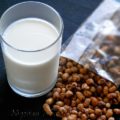The cashew tree, Anacardium occidentale L, was first introduced to India in the 16th century by Portuguese explorers sailing from Brazil, who first planted it in Goa to prevent coastal erosion. Cashew nut trees are used to mitigate soil erosion because of their extensive root system.
It wasn’t until some 400 years after the Portuguese first planted cashew trees on Indian coasts that the nuts’ commercial value was realized. Today, cashew nuts have grown to become one of the most valuable processed nuts in global commodity markets, with a market value of 6.27 billion US dollars.
According to the National Cashew Association of Nigeria (NCAN), Nigeria is currently the fourth-largest producer of cashew nuts in the world, the country earned N123 billion ($402 million) from the export of the cash nuts in 2017, and between 2015 and 2017, they earned N284.5bn ($813.05m) in foreign exchange from the exportation of cashew nuts.
Health Benefits Of Cashew Nuts And Health Impact
Cashews are an excellent source of magnesium, phosphorus, copper, and manganese and a good source of zinc and iron. Cashew nuts provide 5 grams of protein per serving. According to gymbeam food experts, the following are the health benefits of eating cashew nuts;
Weight loss. Nuts have a high-fat content, in the case of nut cashews, it is almost 46%. At the same time, they are rich in other nutrients, containing a number of minerals and fatty acids that promote weight loss. Cashews will feed you and after eating you will feel full enough to forget the unnecessary overeating and consumption of fast but very unhealthy snacks. Fats in foods enhance the satiety of foods and increase the absorption of fat-soluble nutrients and minerals (for example, vitamin A and vitamin D). The results of scientific studies have shown that people who eat nuts at least twice a week have a significantly lower risk of increased body weight than those who do not eat nuts at all.
Reduce the risk of cardiovascular disease. Regular consumption of cashews can reduce the risks associated with heart disease, high cholesterol, high blood pressure, or obesity. Nuts also have a positive effect on stress management, treatment of inflammation, or vascular and arterial activity that promotes healthy heart function.
Help fight cholesterol. Cashew nuts can lower the level of “bad” LDL cholesterol and improve “good” HDL cholesterol. Nuts contain phytosterol compounds that stabilize cells and prevent cholesterol absorption.
Prevent the formation of gallstones. Eating nuts, including cashew, reduces the risk of stones in the gallbladder. The disease results from supersaturation of the bile with cholesterol, which circulates throughout the entire digestive tract. In the case of liver problems, the risk of developing gallstones is even greater because the cholesterol released acts as an adhesive to which other substances (eg calcium) bind inside the gallbladder.
Reduce the risk of cancer. Regular consumption of nuts, including cashews, is associated with a lower risk of cancer, especially in the digestive tract (liver cancer and colon cancer). Nuts are an excellent source of antioxidants. The British Institute for Cancer Research analyzed the effect of nut consumption (almonds, para nuts, cashews, hazelnuts, walnuts, pistachios, pecans, and pine nuts) on pancreatic cancer. The results showed that women who ate two or more portions of nuts per week had a significantly lower incidence of the disease.
Good source of vitamin K. Cashews contains calcium, magnesium, and potassium – that is, a large number of substances needed to maintain healthy bones that prevent bone demineralization. In addition, cashews are a great source of vitamin K and already 1/4 cup of cashew provides more than 12% of the recommended daily dose of this vitamin. Vitamin K together with calcium keeps bones in shape, provides them with sufficient mineralization, and protects them from fractures or osteoporosis.
Promote healthy brain function. Proper brain function is dependent on a stable supply of healthy fatty acids from food. Nuts, including cashews, are one of the most natural vegetable foods rich in fats. As a result, they support cognitive functions of the brain, cognitive capabilities of brain processes, and mood control. Lack of monounsaturated (MUFA) and polyunsaturated (PUFA) fatty acids can lead to mental disorders, anxiety, depression, dyslexia, or even dementia.
Reduce the risk of diabetes. Cashew nuts are a rich source of monounsaturated fats (MUFA) that slow the release of blood into the bloodstream. The anti-diabetic properties of cashews work thanks to hydro-ethanolic substances in the form of anarcadic acid, which controls the spread of glucose in the body. Sufficient cashew intake also helps prevent arterial hypertension (blood pressure greater than 140/90).
Protect against unpleasant headaches. In addition to promoting healthy brain function, improving blood circulation while taking care of lowering blood pressure, cashews also contain phytosterols that reduce the duration of headaches. Hypoglycemia is a well-known trigger of migraine and is also an effective tool in combating headaches caused by sudden changes in blood sugar.
Essential fatty acids promote healthy skin. The presence of fats in the cashew keeps the skin hydrated enough and the fatty acids protect it from aging without any irritation. In addition to fats, cashews are also an excellent source of copper, which plays an important role in pigment and collagen production. They take care of elastic skin and healthy hair.
Side Effects
Cashew nuts can cause bloating, constipation, weight gain, and joint swelling in some people. But these side effects are rare. When applied to the skin: There isn’t enough reliable information to know if cashew is safe. If the unroasted cashew is used it might cause skin irritation, redness, and blisters. Cashew nuts also contain phytates, an antinutrient that can negatively impact how your body absorbs the nutritional content of cashews. Likely, soaking your cashews before eating or preparing food with them reduces the efficacy of the antinutrient. READ: Health Benefits and Side Effects Of Groundnut Water






